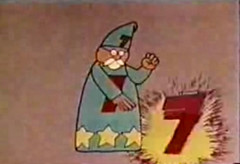Mankind cannot remain indifferent to its monsters
Today’s meditation on the extraordinary case of Terri Schiavo comes to us from Pierre Boaistuau, the author of Histoires prodigieuses (1561), by way of Bataille:
Among the things that can be contemplated under the concavity of the heavens, nothing is seen that arouses the human spirit more, that ravishes the sense more, that horrifies more, that provokes more terror or admiration to a greater extent among creatures than the monsters, prodigies, and abominations though which we see the works of nature inverted, mutilated, and truncated.


2 Comments:
It is not very astonishing, that science in its infancy (till the end of 18th century) also has showed an enormous interest in monsters (vid. e.g. 18th century Proceedings of the Royal Society). There was also a doctrine called "therapeutischer Nihilismus" (therapeutic nihilism) amongst Viennese doctors at the Allgemeines Krankenhaus during the second half of the 18th century. They held the view that one should observe the decline of (at their times) mortally ill people in order to learn more about illnesses without any desperate attempts of healing them. Course books of that time contain descriptions of final states of illnesses which in some cases almost nobody has seen in the last 200 years again. Now, at the beginning of the 21st century new monsters have appeared; because of the reached level of perfection in postponing natural decline we see people who don't can live on there own but also can't die. There is some possibilty that they can fully recover but a chance of p = 1 that they will die immediately without constant medical care. Who shall decide when to switch off the machines? It is a slippery slope; once you are in a coma and your body is connected to caring technology who should decide to stop medical care? There is always the possibility that the patient can recover, and live a human life again even if there remain several handicaps. But in many cases this doesn't come true. A monstrous situation is established and can be observed for many years. But should in this case "ethical nihilism" be the new doctrine?
Hi Ferry,
Thanks for your note. The researches of the Allgemeines Krankenhaus sound fascinating, and very Viennese! I agree that modern medicine makes new and scary things possible. Being allowed to die by a Viennese doctor is scary, too, but the ethical issues there don't raise the same questions about the nature of human life. I think it would be nice if thoughtful doctors would take the lead in medico-ethical thought. I find these issues extremely perplexing, but a doctor who has seen many different deaths and their effects might be more grounded in human reality.
Carl
Post a Comment
<< Home